Working as a crime scene cleaner is not for the faint-hearted, but it can be an extremely rewarding job for the right person.
Are crime scene cleaners a thing?
Yes! Crime scene cleaners play a vital role in restoring trauma scenes and contaminated areas and protecting public health. The job is diverse and can lead to a long and satisfying career in a unique and progressive field.
You don’t need a degree to apply for crime scene cleaner jobs, but you must have a strong stomach and a willingness to learn specialist cleaning solutions.
If you’re considering pursuing a career in trauma cleanup, then here are the key steps to becoming a crime scene cleaner in the UK.
Learn about the role of a crime scene cleaner
You must clearly understand what crime scene cleanup jobs involve and the sanitising products used in forensic cleaning.
Chron describes how “a crime scene cleaner responds to the scene of a violent crime, suicide, or other trauma and cleans areas affected by blood, bodily fluids and other biological material.”
Witnessing crime scenes can be extremely traumatic and take a toll on your physical and emotional health. Crime scene cleanup is a gruelling responsibility, and the role is not for everyone.
How to Become a Crime Scene Cleaner
If you’re interested in pursuing a career as a crime scene cleaner, here are the essential steps you need to take:
- Complete a specialised course: Start by enrolling in a course focused on trauma or crime scene cleaning.
- Gain practical experience: Look for entry-level positions with reputable companies authorised to handle crime scene and biohazard cleanups.
- Pass a background check: Since crime scene cleaners need access to sensitive areas and information, a thorough background check is essential.
- Expand your expertise: Continuously enhance your skill set by pursuing additional courses in specialised topics such as sharps removal and pest control.
Speaking from experience
Our very own MD, Ben Giles, was recently invited to an exclusive interview for LADBible TV to discuss the ins and outs of murder and suicide cleanup.
This exciting and informative interview will give you a first-hand insight into the role of a crime scene cleaner in the UK.
What is the average crime scene cleaner salary?
According to Salary.com, the average crime scene cleaner UK salary is almost £28,000 a year. However, the exact amount will depend on several factors, including your experience and location.
Professional cleaners can increase their earning potential by completing additional qualifications like biohazard decontamination or sharps removal training.
You may also be able to boost your annual salary by working overtime or unsociable hours.
You should be given an indication of the salary on offer when you start applying for crime scene cleaner jobs.
Crime scene cleaner salary per hour
Due to the nature of the work, it is also common for crime scene cleaners to be paid by the hour.
The average hourly wage for a professional crime scene cleaner ranges from £14 to £26, according to Payscale.com. However, this should increase as you gain more experience and relevant qualifications.
How long does it take to clean up a crime scene?
The time it takes to sanitise a trauma scene will vary depending on several factors, such as the size of the affected area, the crime that took place, and the severity of damage. You will learn more about this when you complete a forensic training course.
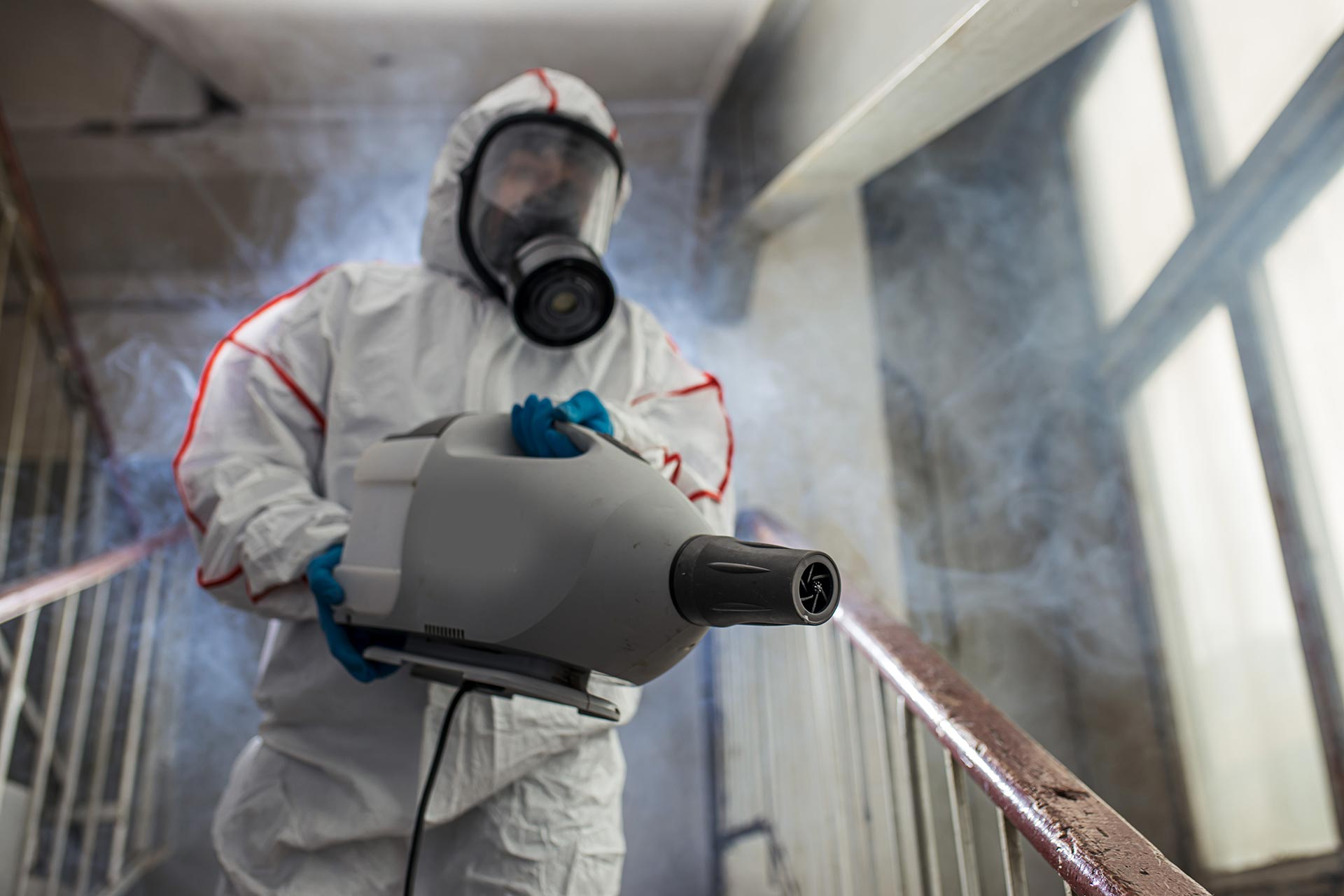
Understand the requirements for crime scene cleanup
The crime scene cleaning industry is not regulated in the UK, although strict public safety guidelines must be followed to minimise potential risks.
The Health and Safety Executive regulates biohazards like blood and other bodily fluids.
This means that only authorised companies can handle the cleanup of biohazards using professional cleaning supplies and materials.
Who cleans up crime scenes?
Trauma scene cleanup is a challenging field, and professionals must meet various background requirements.
For instance, crime scene cleaners must have compassion and show integrity when dealing with sensitive situations.
They must also have a good understanding of specialist cleaning solutions and be able to use pro clean products like a handheld fog machine and cleaning chemicals.
A thorough background check is carried out to make sure that candidates meet the necessary requirements.
Who is responsible for arranging crime scene cleaning?
The owner or facilities manager is responsible for arranging crime scene cleaning services.
They have a legal duty to protect the health and safety of employees and visitors, so they must hire fully-trained cleaners to carry out the work.
Crime scene cleaning must be carried out in accordance with the Health and Safety at Work Act 1974 and the Control of Substances Hazardous to Health Regulations 2002.
This is why hiring professional trauma cleaners with plenty of industry experience is always best.
Complete crime scene cleaner qualifications
What degree do you need to be a crime scene cleaner?
No formal education is required to become a crime scene cleaner in the UK, and a degree is not required.
Do you need qualifications to become a crime scene cleaner?
Crime scene cleaners in the UK don’t require a degree, but they must complete specialist training to gain the skills, knowledge, and expertise to meet the demands of the role.
If you’re interested in pursuing a career in this field, you must complete an approved crime scene cleanup training or forensic cleaning course.
This will cover key topics such as how to use personal protective equipment and how to operate a fogger and sanitiser machine.
Specialist crime scene cleaning online course
At Ultima Cleaning Academy, we offer a variety of specialist biohazard and decontamination training courses and industrial cleaning supplies.
Our new online Suicide, Murder Scene and Trauma Clean-Up course will teach you everything you need to become an effective crime scene cleaner.
You can learn more about this fully accredited course by clicking here.
In-person training
Our online programmes are extremely popular, but we also offer classroom-based courses if you prefer face-to-face training.
For instance, our Decontamination and Biohazard Cleaning Course takes place in person and offers specialist in-depth training from experienced instructors.
This forensic cleaning course covers a wide range of topics, including professional trauma cleaning, pest control supplies, and how to clean up crime scenes using professional cleaning materials.
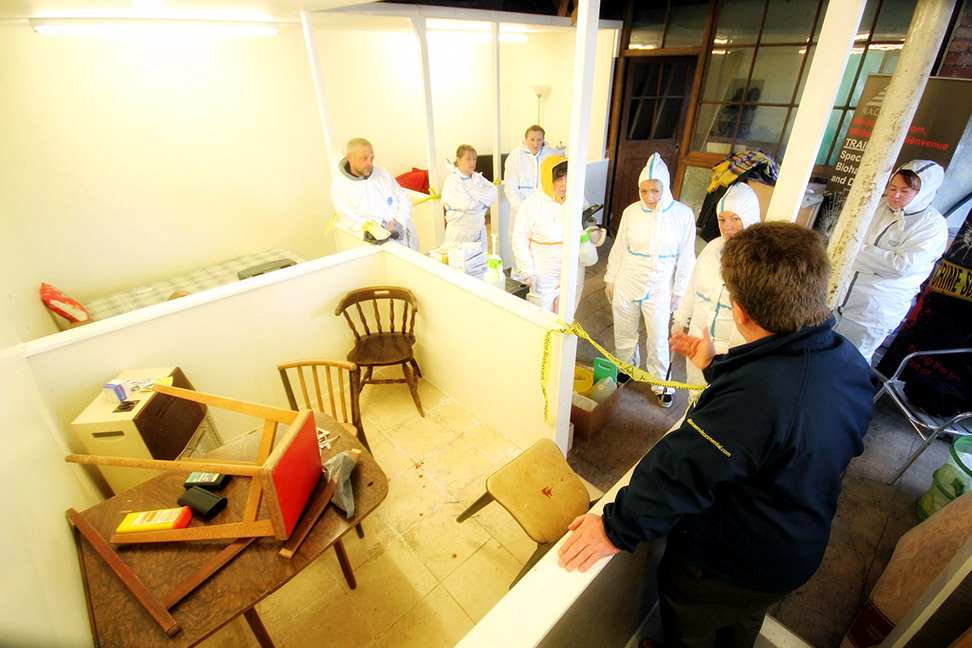
Gain relevant industry experience
Once you have completed the relevant crime scene cleaning qualifications, you can start applying for jobs. Most crime scene cleaners work for specialist cleaning companies.
You can search for trauma scene cleanup jobs online or contact companies directly to enquire about positions.
Many employers provide induction training to teach employees the specialist skills and knowledge needed to work safely in crime scene cleanup. Look for an employer that offers structured training and career development.
How to learn about crime scene cleaner jobs
You can learn more about crime scene cleanup training and the role and responsibilities of a trauma cleaner by visiting reputable websites like Study.com or speaking with people who work in the industry, like our team here at Ultima.
On-the-job trauma cleaning training
Many crime scene cleaner jobs require intensive on-the-job training to prepare for the role.
You will also need to gain a thorough understanding of the specialist sanitising products and cleaning solutions used in trauma cleaning.
Relevant training courses
You may also decide to enhance your CV by completing additional training courses on specialist topics like biohazard awareness, sharps removal, or professional cleaning solutions.
Earning extra certifications will give you a competitive advantage and help you secure the top roles in the crime scene cleaning industry.
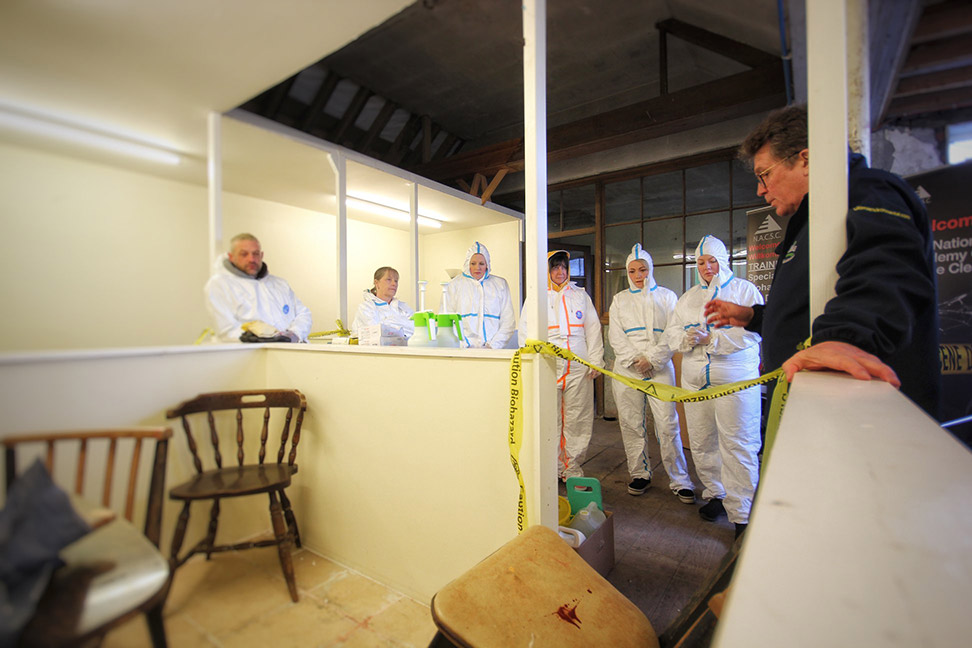
Have the right tools and equipment – Key for your safety
Crime scene cleaners must have the right equipment and cleaning supplies to complete their tasks of dealing with hazardous materials safely and efficiently.
This should include the appropriate personal protective equipment (PPE) , essential cleaning products, and antiviral disinfectants from high-grade cleaning products brands such as Byotrol.
Exclusive discount on Byotrol products
We’re offering a huge 20% discount on our new Byotrol UK cleaning supplies and sanitation packages to help individuals and businesses stay safe during and after the COVID-19 pandemic.
Explore our full range of Byotrol products and check out our amazing offer below:
The Risks of Cleaning Crime Scenes
Crime scene cleaners must have the right equipment and cleaning supplies to complete their tasks of dealing with hazardous materials safely and efficiently.
Crime scene cleaning, while essential, carries inherent risks that extend beyond just removing visible stains. Understanding these hazards is crucial for appreciating the role of professional cleaners. Here’s a closer look at the dangers associated with trauma scenes:
Bloodborne Pathogens
Blood at a crime scene is a significant hazard, potentially carrying diseases like hepatitis and HIV. The real risk lies in the potential for these pathogens to enter the body through any skin abrasions or cuts.
This danger emphasises the importance of protective gear such as gloves and suits, which are crucial for preventing direct contact with potentially infectious materials.
Hazardous Bodily Fluids
Other bodily fluids, such as urine and faeces, are equally hazardous. These can harbour bacteria like E. coli and pathogens, including Salmonella, which are known for their resilience on surfaces and potential for long-term contamination.
Cleaners must employ meticulous cleaning techniques to thoroughly sanitise the area and eliminate these health hazards.
Physical Hazards
Crime scenes often contain hidden physical hazards, such as shattered glass or jagged edges, which pose injury risks.
Additionally, the residue from investigative procedures, including fingerprint powder and other materials, requires careful and thorough cleaning to avoid contamination.
Airborne Risks and Residual Dangers
A lesser-known hazard in crime scene cleaning is the potential airborne transmission of pathogens, particularly from dried bodily fluids.
These invisible threats necessitate the use of appropriate respiratory protection and meticulous cleaning strategies.
The Emotional and Psychological Impact
Besides physical risks, crime scene cleaning also has a significant emotional and psychological impact.
Exposure to scenes of violence and death requires mental fortitude and emotional resilience, making this a profession suited only for individuals who can handle its challenging nature.
Summary
If you think you have what it takes to be a crime scene cleaner, start researching the role and find out what qualifications and training you will need.
Get in touch for expert advice
Our team has many years of experience cleaning crime scenes and training professionals on how to carry out safe and effective trauma cleanup.
Get in touch if you have any questions about our crime scene cleaning course or cleaning supplies.
You can visit our website to learn more about our exciting range of online and face-to-face courses.
FAQs
How much do crime scene cleaners make?
However, the amount you are offered will vary depending on factors like your location and your level of experience regarding trauma cleaning services.
How can crime scene cleaners increase their salary?
They may also be able to boost their annual salary by working overtime or unsociable hours.
Who is responsible for arranging crime scene cleaning?
What degree do I need to become a crime scene cleaner?
However, crime scene cleaners must complete specialist training to prepare them to work in the emergency services field. They must also have a good understanding of professional cleaning solutions and be able to use pro clean equipment like a handheld fog machine and cleaning chemicals.
A thorough background check is carried out to make sure that candidates meet the necessary requirements.
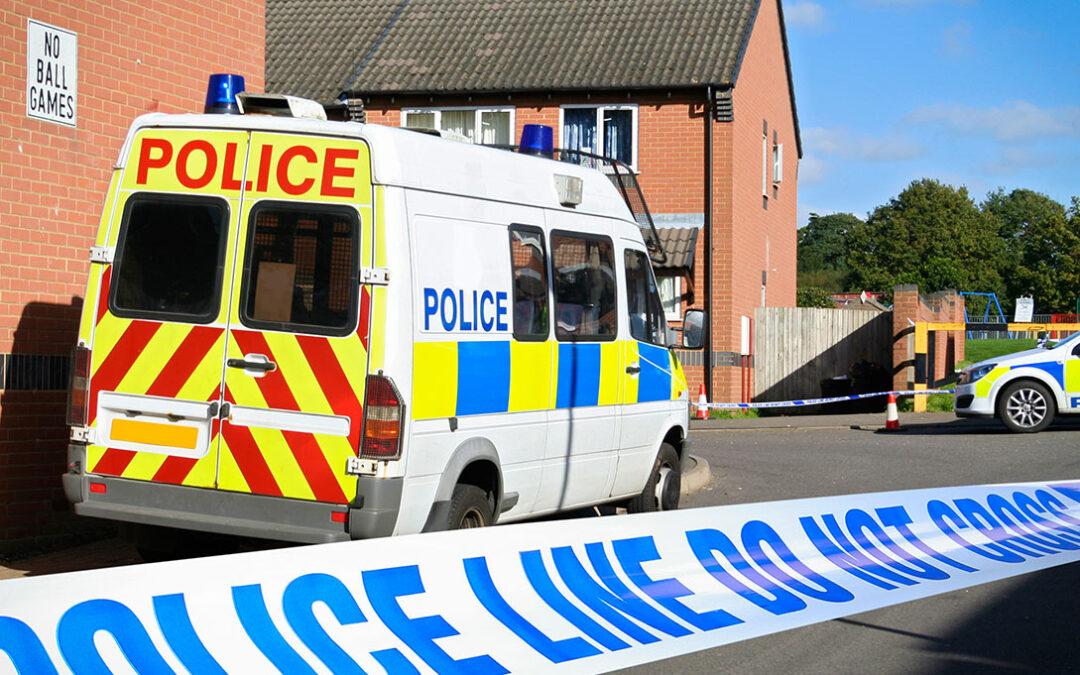
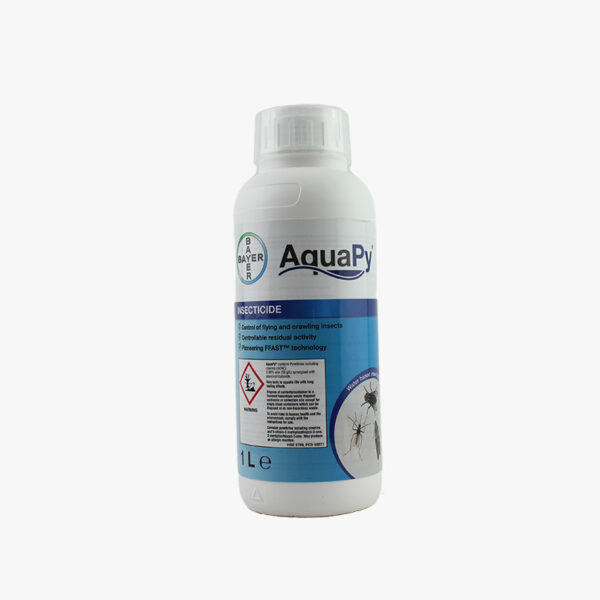
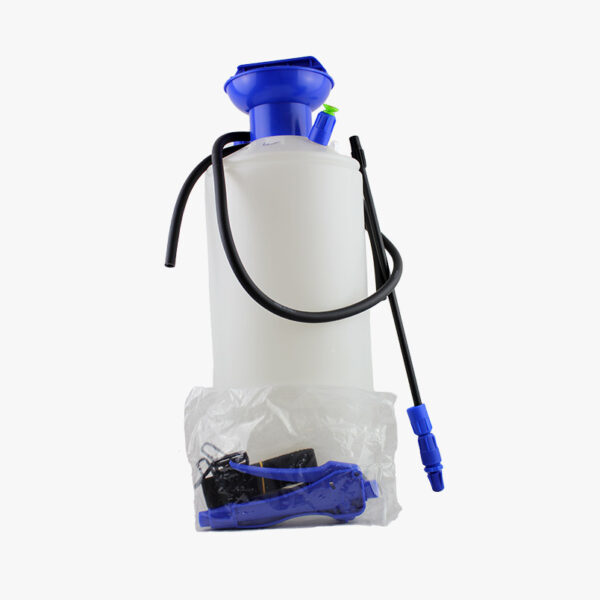
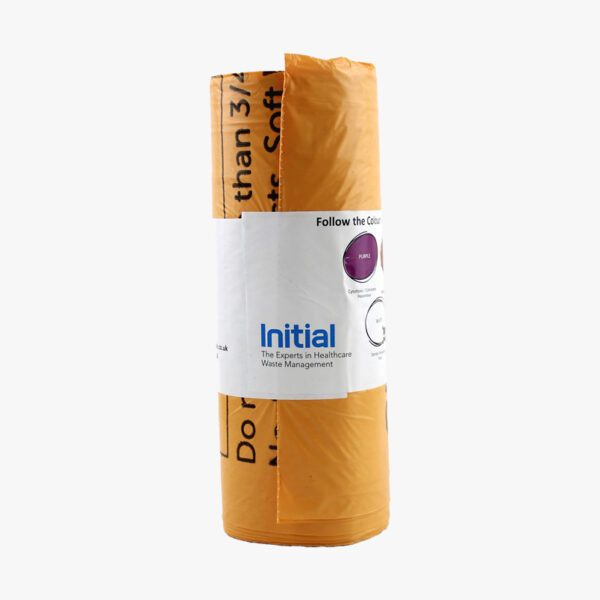

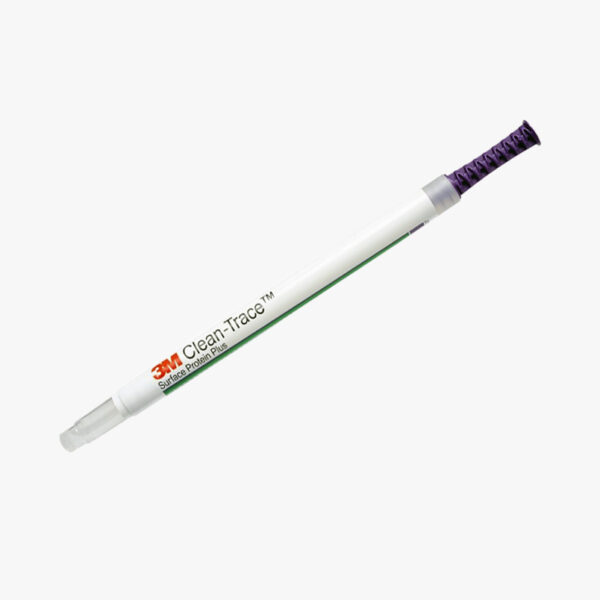
Hi where is your nearest course to me please I’m in Kent
Hi Gemma! All of our face-to-face courses are held in Bristol. Please see our training page for more details.
I am starting up my own business for a cleaning service company, i would also like to add this to the list of things we are able to do. With all the relvant training and certification, licences and the right equipment and correct products am i able to do that.
Hi where is the nearest course in bristol I’ve been a general cleaner in secondary schools now for 10yrs but would love to learn the crime scene side off cleaning
Hi Sarah, thanks for your enquiry! All of our face to face courses are held at the Double Tree Hilton, Bristol North. You can see all available course dates on our dedicated page.
Hi how do I find a role near to me I am in Devon.
Hi,
Can you tell me my nearest training course for the West Midlands.
Can you do this job with a criminal record?
Hi would love the change my career can you please tell me if there is any courses in Telford area thanks
Hello. I currently work at my local hospital as Clinical Support. Need and want a new challenge. Regards Emma
Hi my name is luke I’m a scaffolder 30 years in the game I would like a change in life and this is one job I would like to do but don’t know how to go about it can you help please I’m a hard worker and will do my best to help
I am in Guildford… where is the nearest course please.
Hi Stevie, thanks for getting in touch!
All of our face-to-face courses are held in Bristol. You can see full details and available dates here.
Hello, I am a self employed cleaner running my own cleaning business. I am looking to gain experience in different aspects of cleaning and I am looking to add crime scene cleans to expand and grow.
Hi Gemma, thanks for getting in touch! Crime scene cleaning is covered under our Decontamination and Biohazard Cleaning Course. Our next available course dates are in June. If you have any questions you can get in contact with our specialist advisors here 🙂
Ive been thinking about maybe looking into something like this for a while now, I have no experience in this sort of thing but find it fascinating.
What would be my first steps, I live in Northampton.
Hi Reece, thanks for getting in contact! The first step would be to look into taking our training course, you can find all the details here or get in contact with us for more information.
Hi their,
I Have always been fascinated by the world of forensics.
Not one bit of experiance but i am willing to learn, I’m a fast learner at that, but cannot unfortunately give nearly £1000 for the course.. I just dont have it.
This is the job I’ve always wanted. I’ve got a stronge stomach and a will to learn. I cannot travel far due to my daughter. Hope to hear back of yourselves soon.
I would love to do crime scene cleaning how do I go about applying for this kind of job
How long does a course last and what is the cost please
Hi Elizabeth, thanks for getting in contact! We offer a variety of courses, from 3-day in-person courses to self-paced online training, at various price points. All the information about our training courses and pricing can be found here: https://www.ultimaenvironmental.store/all-training/ or you can get in contact with us to discuss the options.
Hi!
I would like to know cost for training and do you provide with job offers after completing training.
Hi,
I was wondering if it is a full time job and how old do you have to be to do it because I am 17 does that mean I am old enough to apply for the course.
Hi I would like to get into crime scence cleaning I’ve been interested in it for a while but don’t where to start if help me out much appreciated
Hi Fiona! The best place to start would be our training courses which are available both in-person and online. See our training page for more details!
Hi,
Just a quick question, I’ve been interested in this field of work for a long time but wasn’t sure where to start. Is the online course for ‘Suicide, Murder scene and trauma cleanup’ a good place to start? And could I start applying for crime scene cleanup jobs after I have finished this course or would I need to take the health an safety and blood borne pathogen awareness courses too?
Any help is appreciated!
hi there I live in Cornwall and is interested in being crime scene trained how do I go about this I already have my own cleaning business but would like to add this to services offered once a person is trained is it the case of making sure u have all the ppe , proper cleaning products ,fog machine etc are u able to help me understand what is needed tha ks Diana roberts